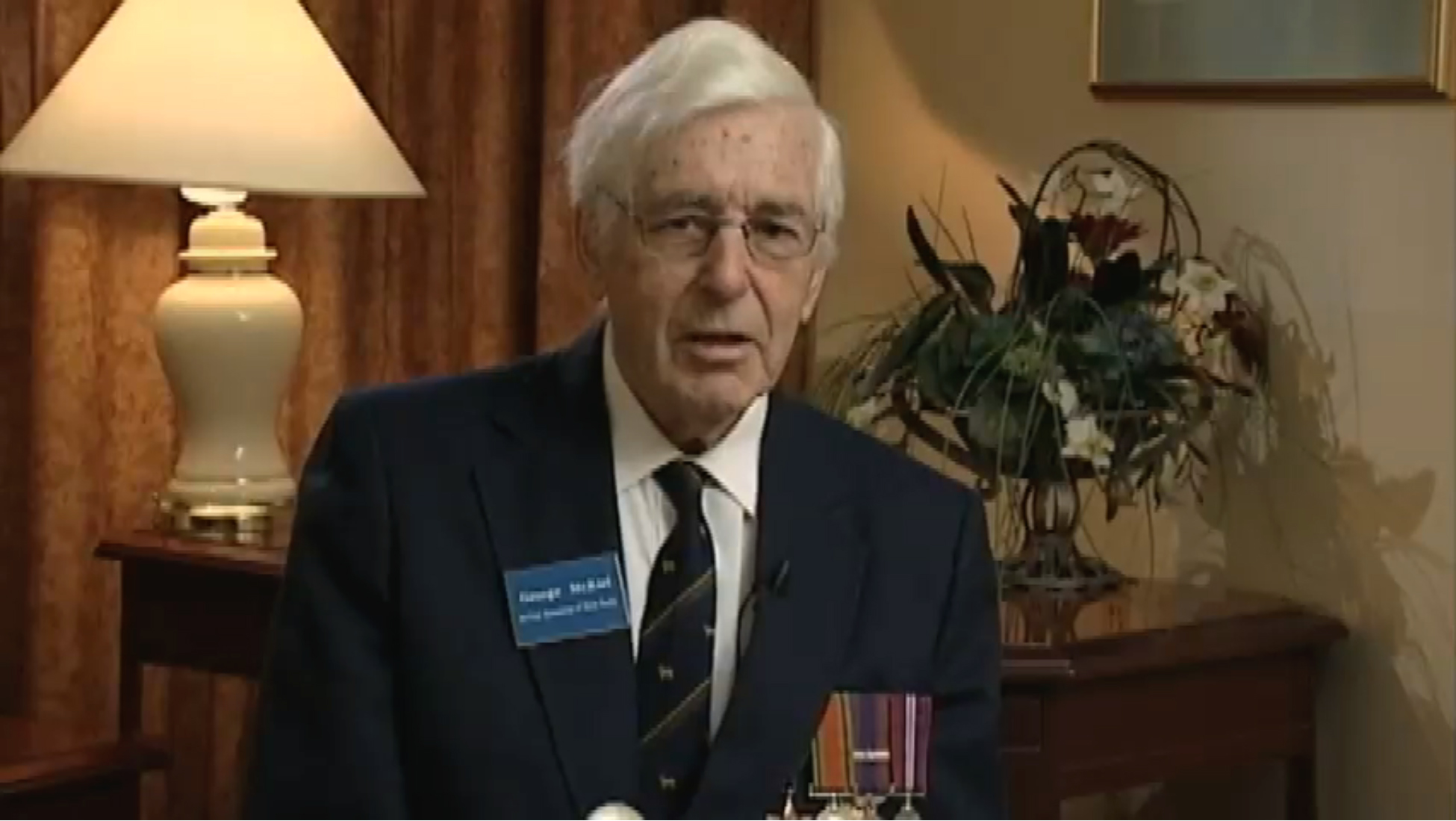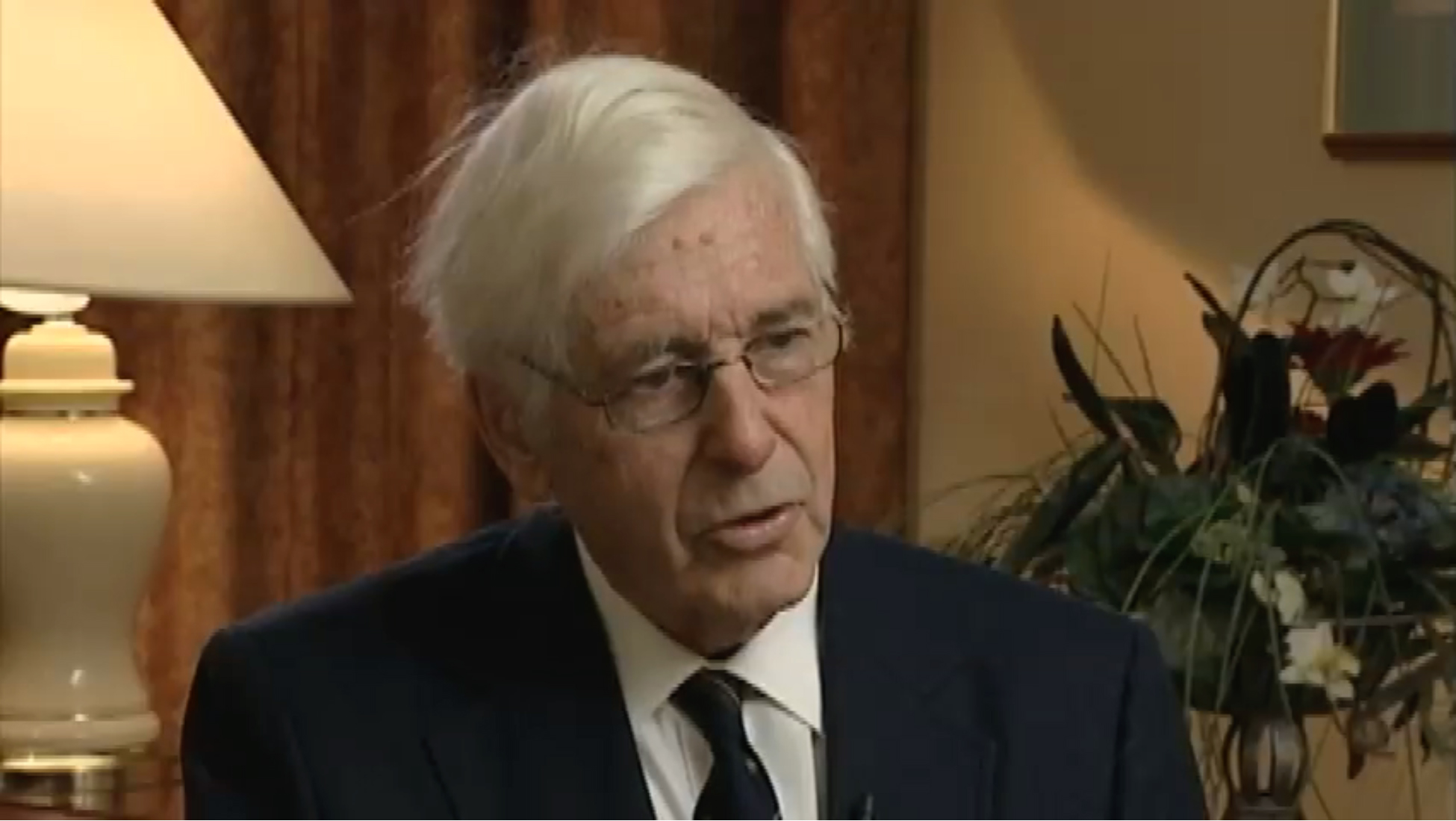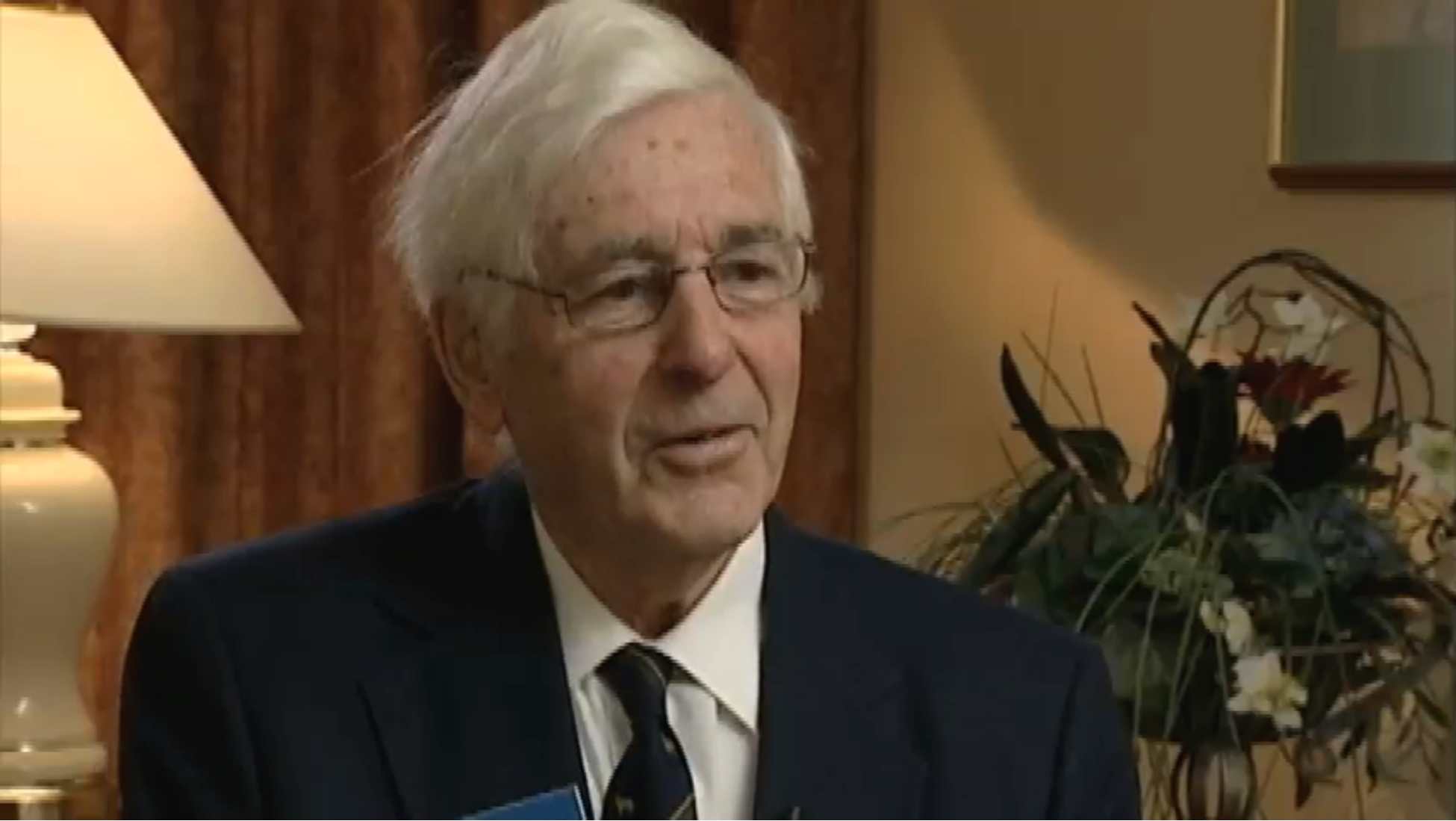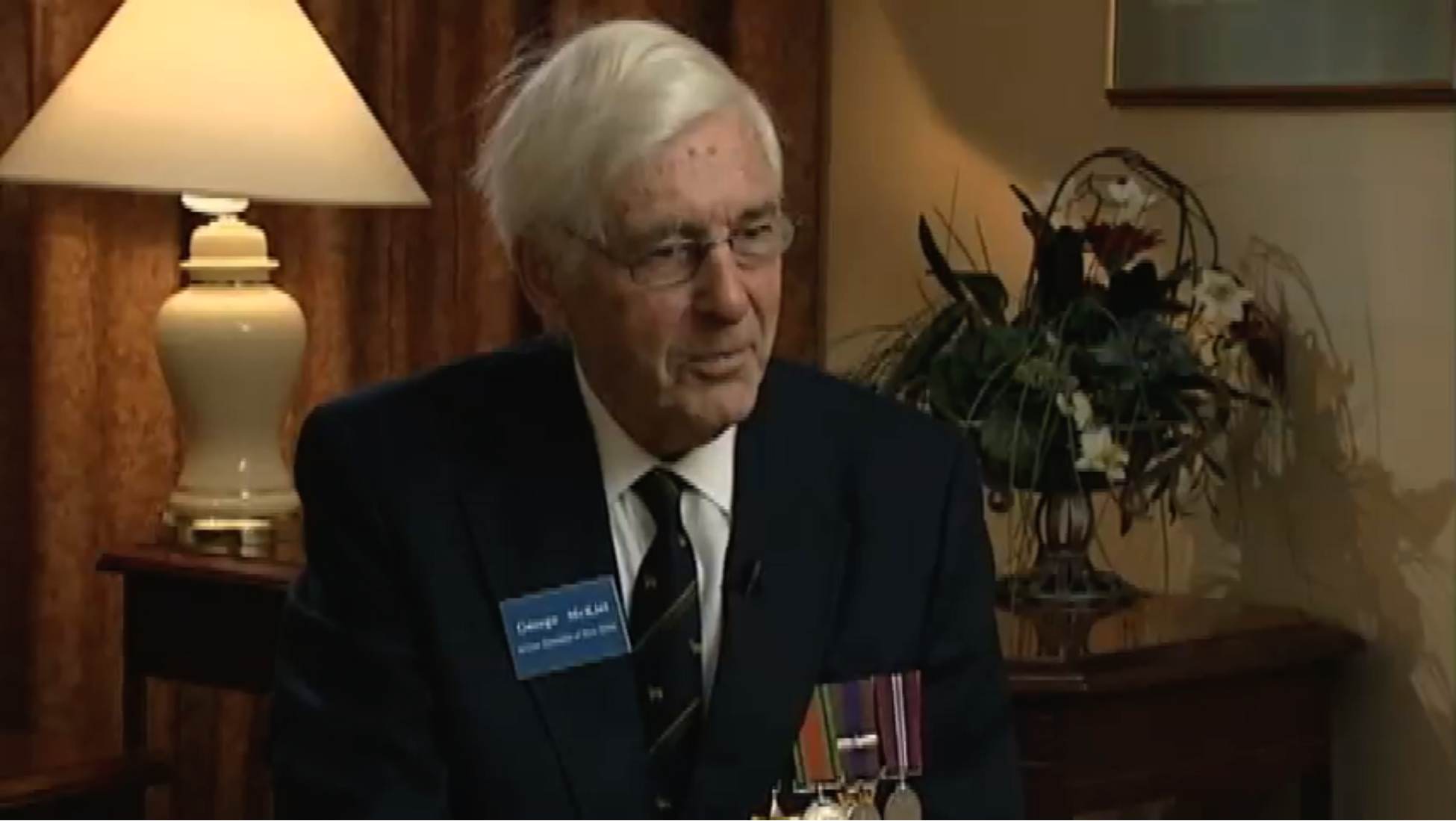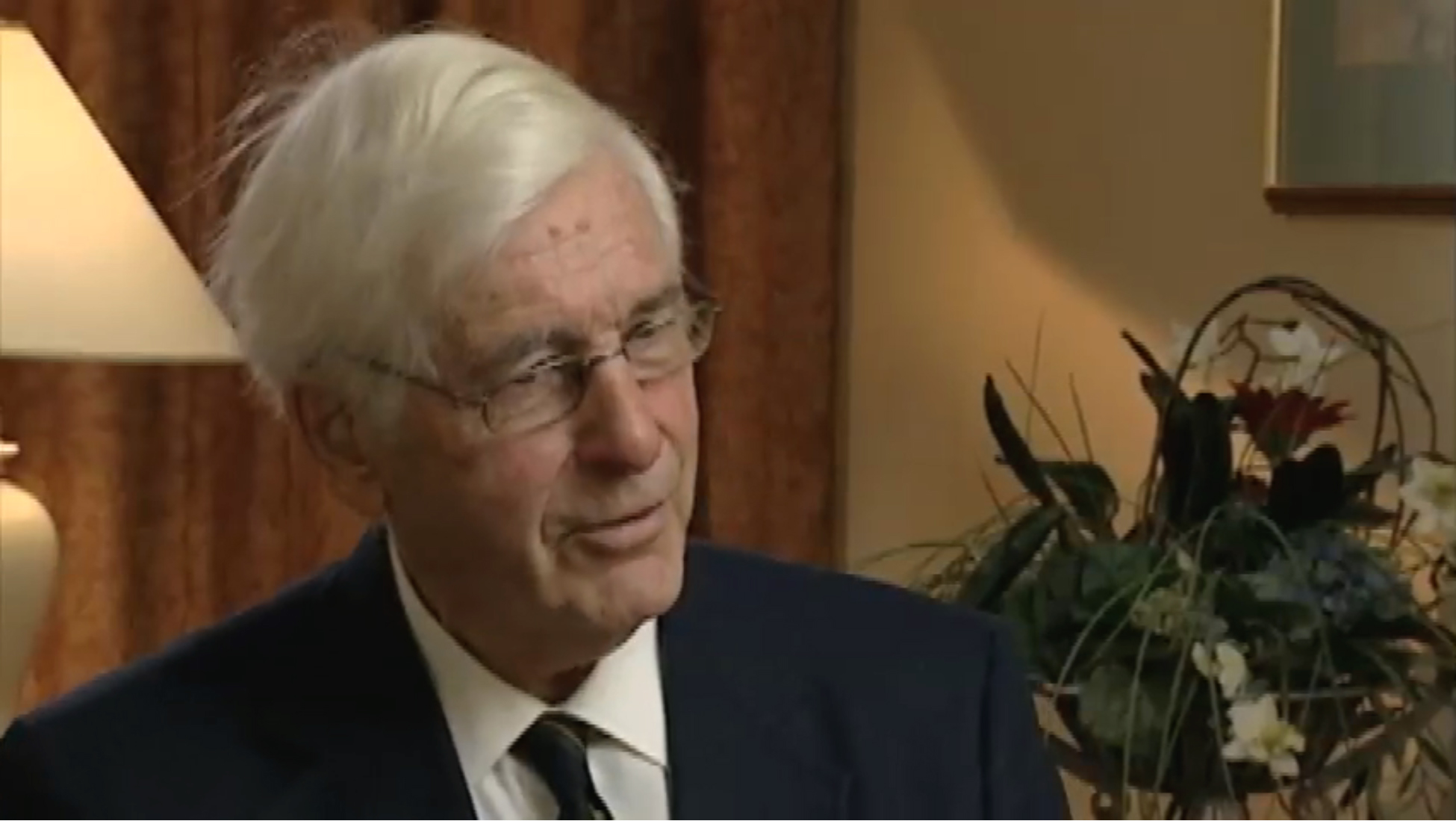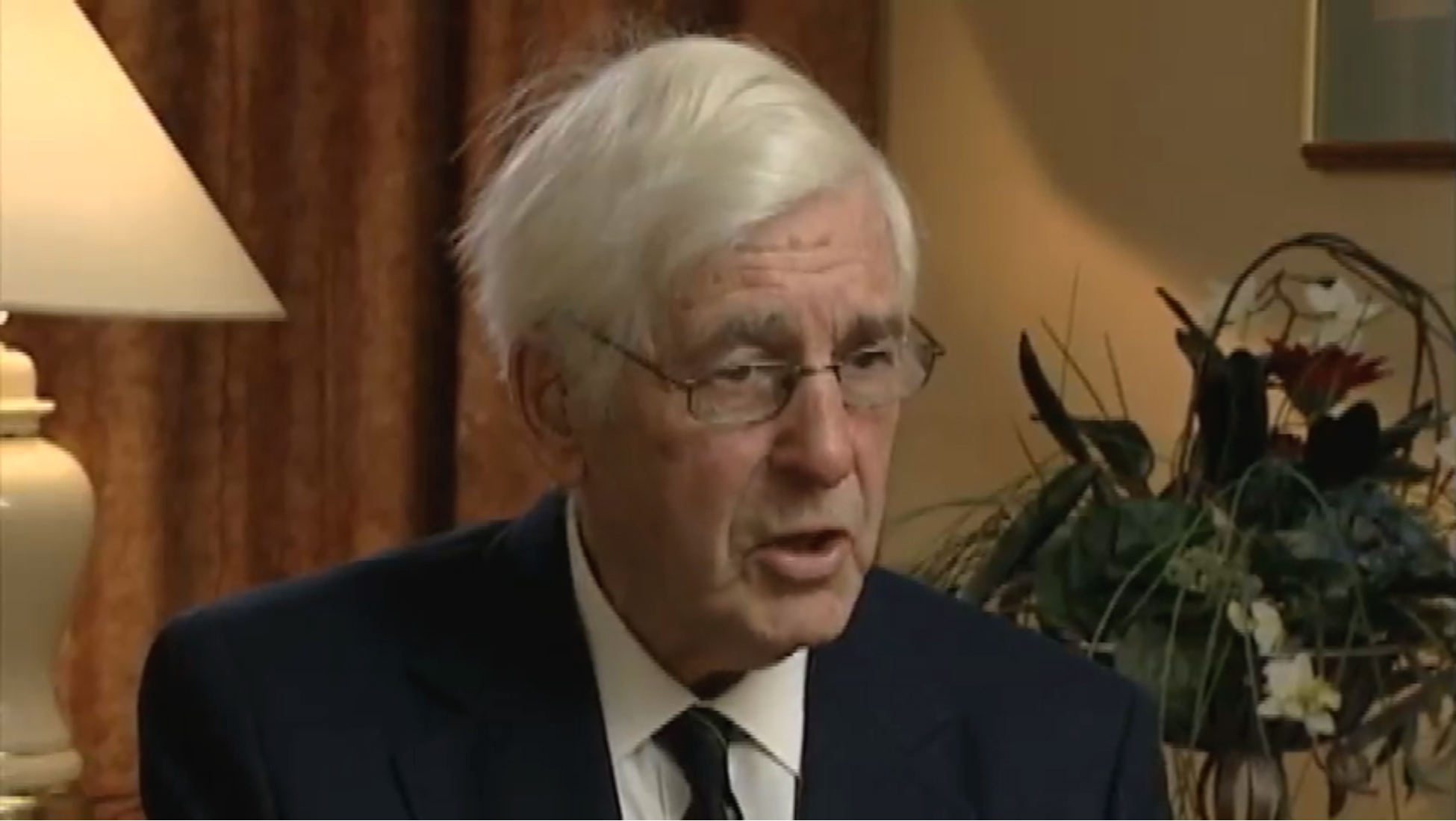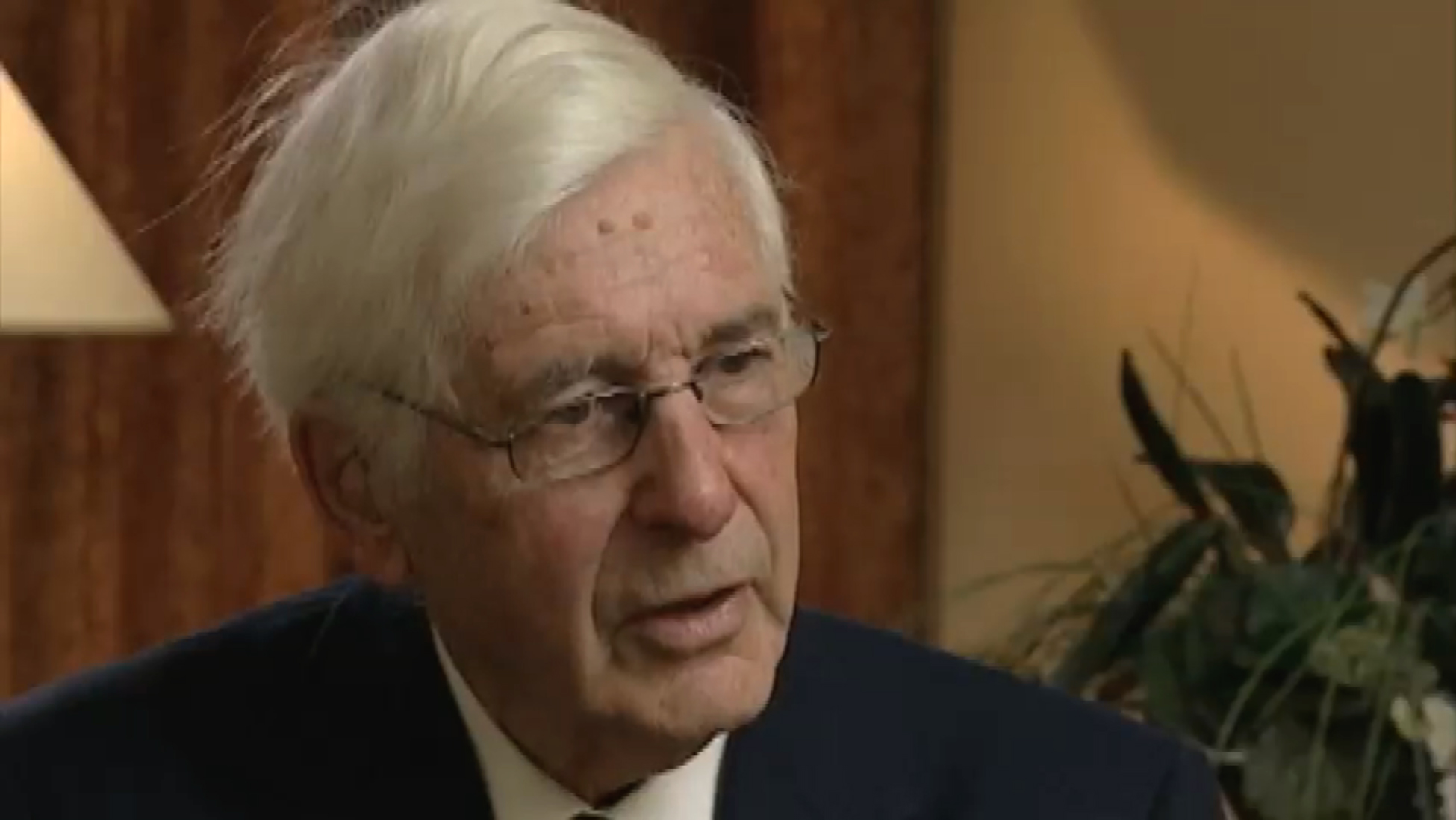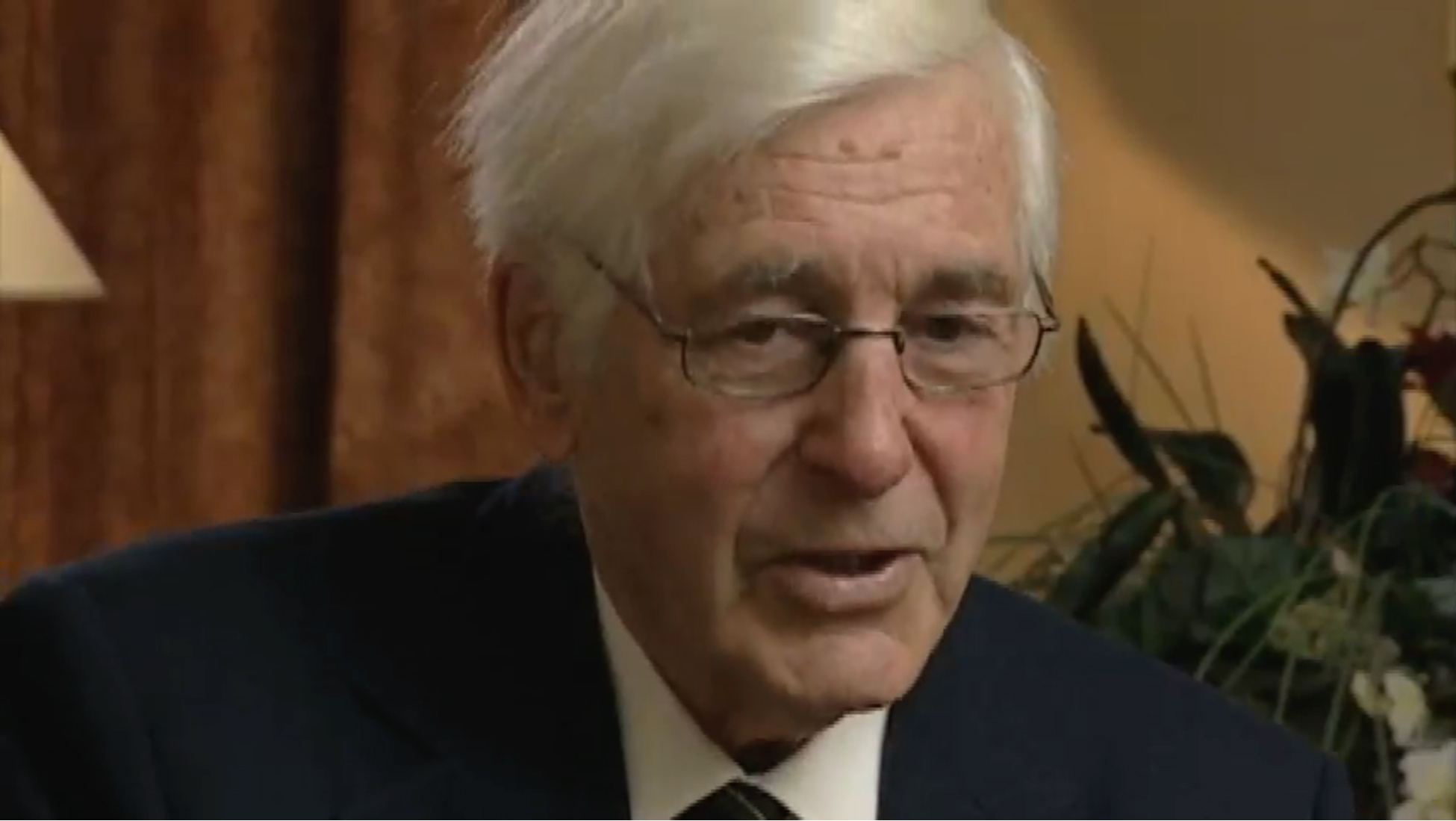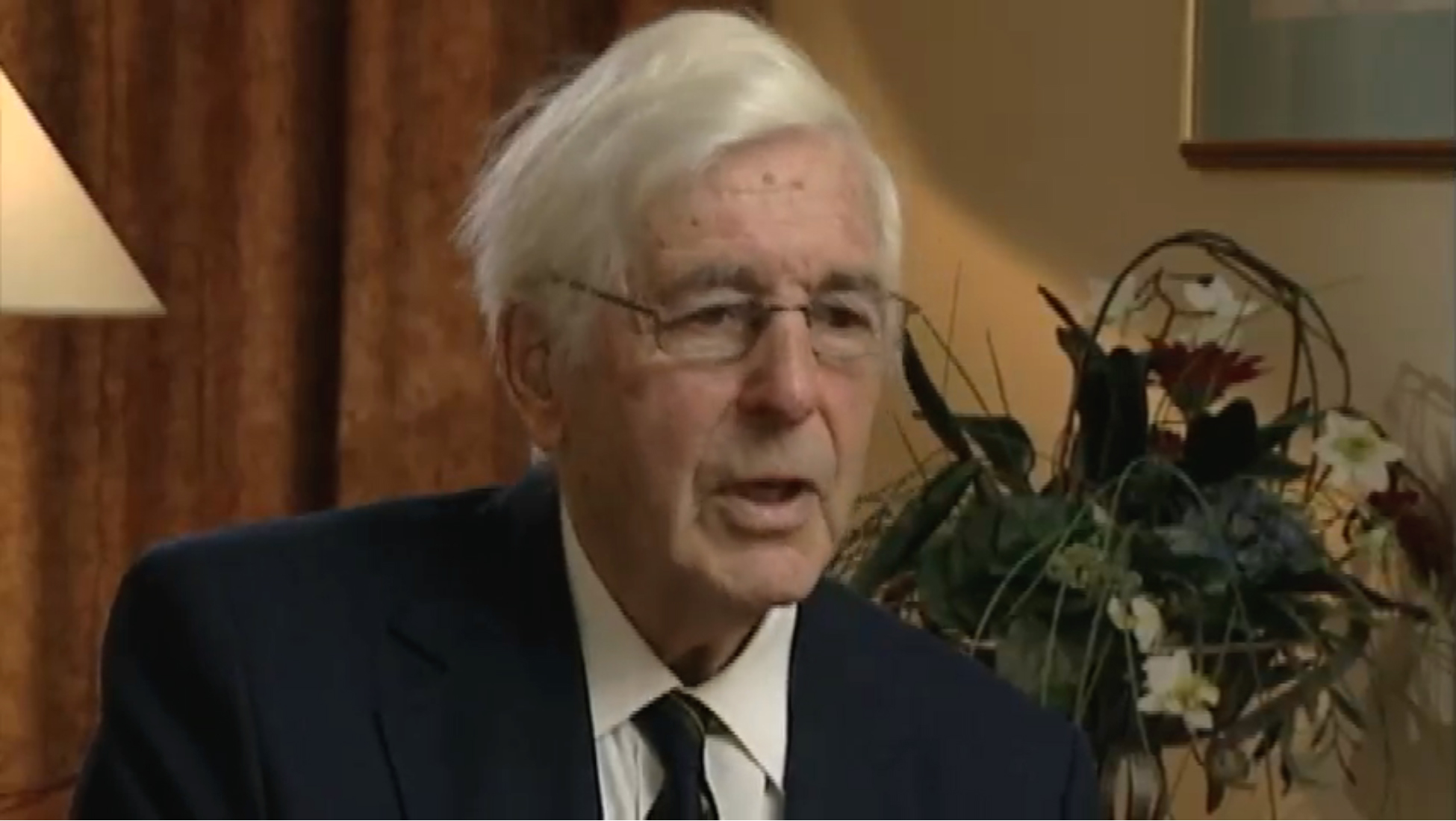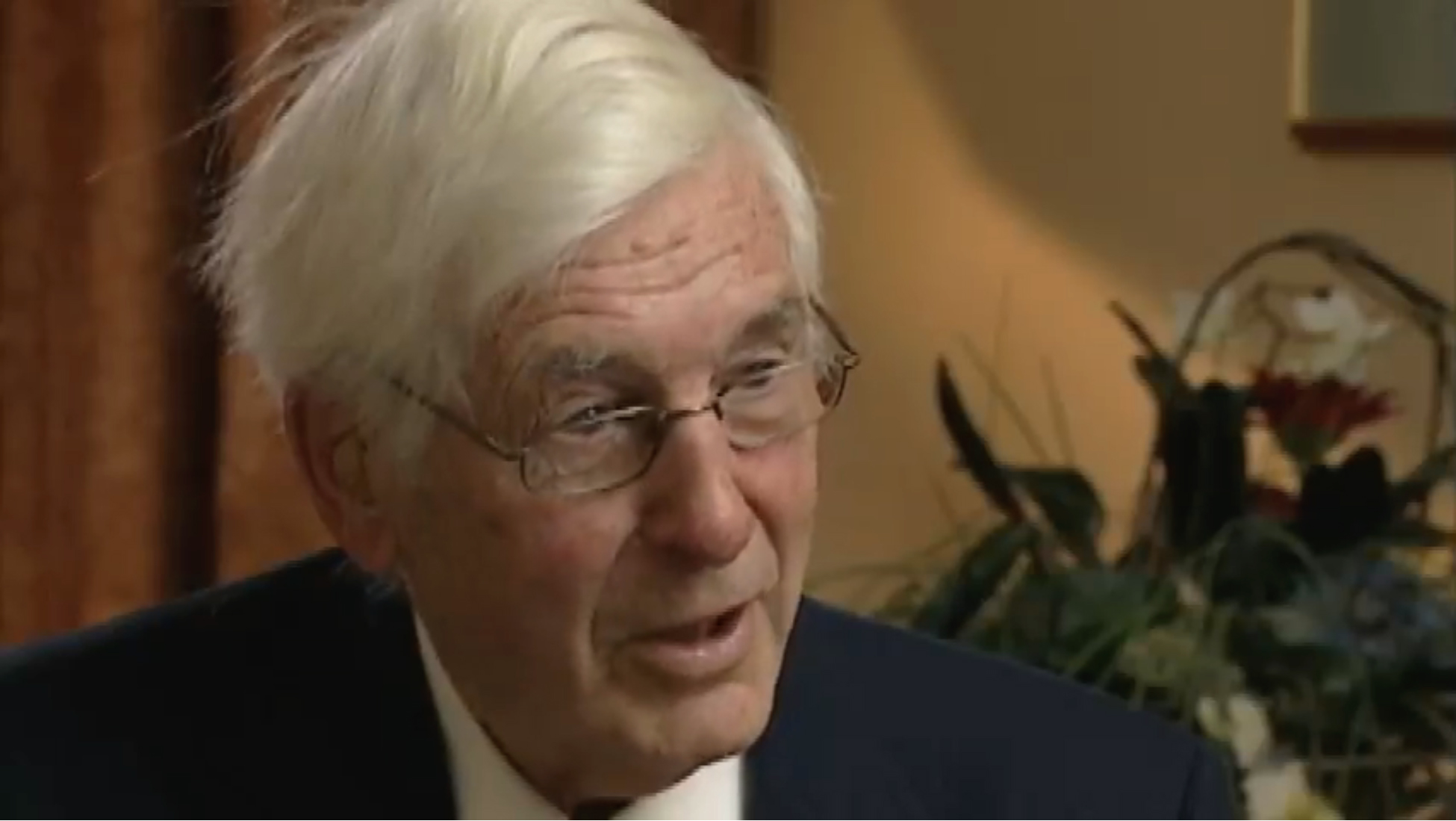So, that went on for awhile, so the tension in the camp grew and
grew as the time got closer to when the tunnel might break.
And there was opted that it would probably have to be sometime
perhaps along in March, and so it was essential in forging the
documents for the escapees. Many of them were going to use ruses
where they would travel by train. So, they had, would be passing
through checkpoints, so they had to have passports or other
official papers. So, the artists in the camp got busy and created
extraordinary escapes stories for each. The problem was, most of
them were photo IDs, and so, in order to get a photograph, we
needed film and a camera. Well, this is where the theatre came in
because the theatre called upon the fact that there was a large
number of people in the camp who were actually very skilled
people and very intelligent people, too, in the sense that they
were all officers. So, in the case of the, in the case of the
tunnelling activities, they said, "Well, alright, we'll have to
have very good papers for these people, but they'll all have to
be dated as well, so we have to choose a specific day when we're
going to be ready to break the tunnel." Well, the tunnel was
finished. It was ready to go, so they decided March the 24th.
That's the date, that's the deadline. What happened on the
24th of March? Well, in the first place, all of us who lived in
Hut 104 would have to get out and spend the night in another
barrack block. But the Germans often pulled fast quick searches
at night, in the middle of the night, and they had a system where
every bunk had a photograph, and if you were not in the bunk,
then you went off to solitary confinement. So, we were wondering
if they were going to do a fast search that night. The other
thing that happened was that each of the people would have to get
to Hut 104 before blackout time. And at night, the blackouts were
big wooden shutters on all of the windows, and they were always
pulled to. And when the tunnel was decided as March the 24th for
the opening, most of the camp realized that although the ones who
were actually going out were better informed than, than others
who were doing other activities. But to come back to the theatre
for a minute, I wanted to just mention that the Germans
recognized that we would be probably a little less trouble to
them if we had some diversions. So, when the camp got together
and said we should have a theatre. We've got all kinds of talent
here. We do have a small kitty because the Germans, at least,
pay us a pittance. They... by the Geneva Convention, which
Germany signed, supposed to pay us the equivalent rank.
So, rather than accept this, the individuals... we all said,
"No, no. Let's put it into a group fund. Then we can buy theatre
supplies, sports supplies, and other things that might be useful
in the camp." Well, to get a camera, the theatre came in,
because we said to them, "You know, you are coming to see these
musicals, you're coming to see some of the plays we've done,
some of the comedy acts. This is a morale booster, and it's
going to be someday be archival material. We should have
photographic evidence of this." And the Germans said,
"You mean, you want some film." And we said, "Yes, we need film
to get some pictures." So, the Germans reluctantly agreed to
this. When we got the film in the camera, we made four forged
passport photos instead, for the escapees. So, that worked well.



